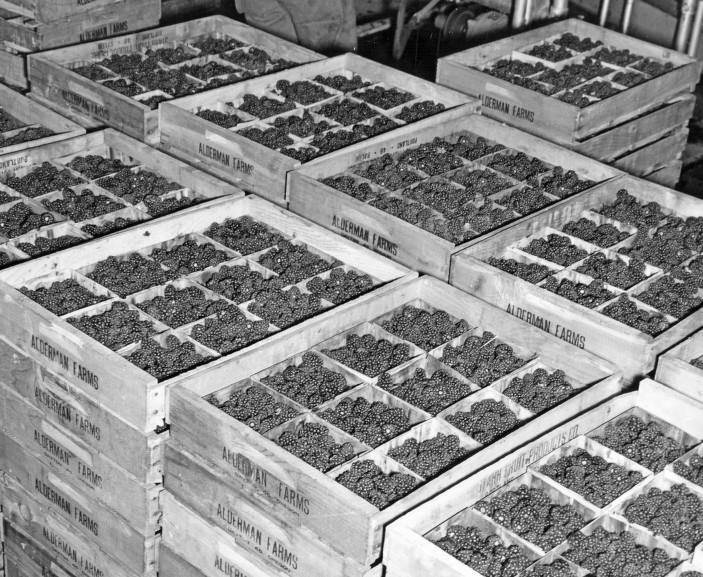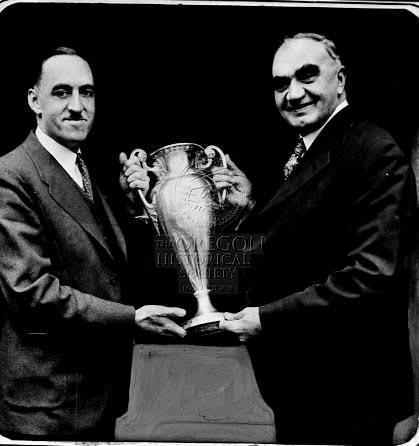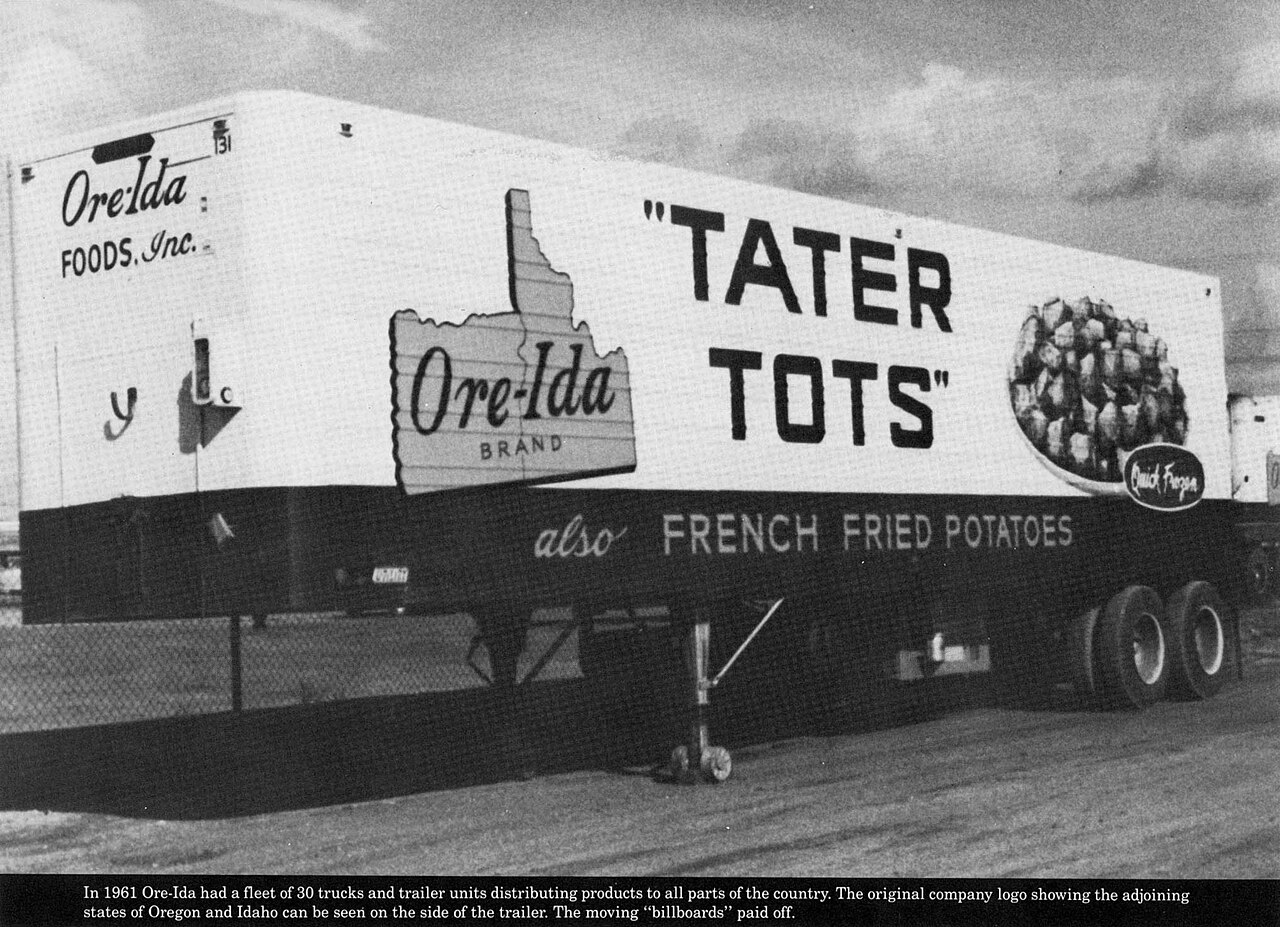When Kettle Foods began producing Kettle Chips in Salem in 1982, the company was making the only all-natural, hand-cooked potato chips in the western United States. The company quickly established a standard that evolved into a trend-setting, multi-million-dollar segment of the potato chip industry. Founder Cameron Healy said he had "no master plan,” but he “wanted to develop products of natural integrity" and “take natural foods to the world.” By 2011, with its signature line of potato chips, the company had acquired a strong and growing international market share and had become a supporter for social and environmental causes.
Healy was born in Bend; his father was Bill Healy, the founder of Mt. Bachelor Ski Resort. Cameron Healy attended the University of Oregon, and while in Eugene, he joined a communal group of Sikhs who founded the Golden Temple Bakery, which produced whole-grain breads and granola. Healy, whose Sikh name was Nirbhao Singh Khalsa, graduated from the university in 1972 and moved to Salem, where he founded the Golden Temple Foods distribution company. In 1977, he established the N.S. Khalsa Company to manufacture his own products, principally roasted nuts and nut butter. Healy initially sold his snacks out of a van along the Interstate 5 corridor in Oregon.
Healy opened a 25,000-square-foot plant in July 1982 in downtown Salem, where the company established a process that was a return to early twentieth-century methods: cooking individual batches of thick-sliced potatoes in vats of hot oil. In 1988, he changed his company's name to Kettle Foods. The company’s manufacturing process uses safflower oil and packs chips in sea salt and nitrogen to preserve freshness. The company also uses Russet Burbank potatoes, which it buys from Pacific Northwest farmers, and does not use monosodium glutamate or artificial colors, flavors, or sweeteners.
Recognizing a market for his chips in the United Kingdom, Healy began production in Norwich, England, in February 1989; by June, U.K. sales were 10 percent of the company’s total. Kettle Foods opened factories in Vancouver, B.C., in 1989 and Springfield, Ohio, in 2001.
As part of its founding principles, the company and its founder have contributed to environmental and social causes. In 2005, Healy joined musician Willie Nelson and other investors to fund SeQuential Pacific Biodiesel’s production facilities in Portland and Salem. Two years later, the company helped preserve Hedges Creek Marsh in Tualatin. Kettle Foods received a Salmon-Safe water quality protection certification for its Salem factory in 2006.
In 2001, four years after moving its plant to 3125 Kettle Court Southeast in Salem, adjacent to a wetlands, the company installed solar panels capable of generating 120,000 kilowatt hours per year—one of the largest installations in the Pacific Northwest. In 2007, Kettle Foods opened the first U.S. food manufacturing facility to earn the Green Building Council’s Leadership in Energy and Environmental Design Gold certification at Beloit, Wisconsin.
By late 2005, Kettle Foods chips had acquired 52 percent of the market share of the “salty snack” category in natural food stores, but only 1 percent of that market in all U.S. food stores. In early 2006, the company hired two executives with experience at Starbucks, Frito-Lay, and Pepsi. Within three years, Kettle Foods had captured 18 percent of the U.S. market share in the “premium potato chip” category. In 1982, the company made $3 million in sales; by 2008, sales were $235 million. The company employed about 300 people in Salem in 2006.
The private investment firm Lion Capital, based in London, purchased Kettle Foods in August 2006. It sold the company to Diamond Foods in San Francisco in February 2010. The brand has retained its name, and manufacturing still takes place in Salem.
-
![]()
Kettle Foods, Kettle Chips, sea salt & vinegar flavor.
Courtesy Badagnani, Wikimedia Commons
Related Entries
-
![Alderman Farms]()
Alderman Farms
As a twenty-four-year-old barrel maker from Michigan, Albert Alderman m…
-
![Davidson Baking Company (Sunbeam Bakery)]()
Davidson Baking Company (Sunbeam Bakery)
Coffee cake, donuts, butterhorns, cinnamon rolls, snack cakes, and, of …
-
![Gardenburger Inc.]()
Gardenburger Inc.
Leftovers at a vegetarian restaurant in Oregon gave birth to the world’…
-
![Reser's Fine Foods]()
Reser's Fine Foods
Reser’s Fine Foods Inc. traces its origin to a kitchen in Cornelius, Or…
-
![Springfield Creamery]()
Springfield Creamery
Long before the natural foods movement went mainstream, Springfield Cre…
-
![Tater Tots and Ore-Ida Foods, Co.]()
Tater Tots and Ore-Ida Foods, Co.
Tater Tots, one of America’s most beloved frozen foods, was invented in…
Map This on the Oregon History WayFinder
The Oregon History Wayfinder is an interactive map that identifies significant places, people, and events in Oregon history.
Further Reading
"Kettle Foods, Inc. History." International Directory of Company Histories, Vol. 48. St. James Press, 2003.
"Kettle Foods of Salem Sold for $615 Million." Bloomberg News, February 26, 2010.
House, Kelly. "Kettle Chips factory tour reveals anatomy of an Oregon potato chip." Oregonian, July 25, 2013.







